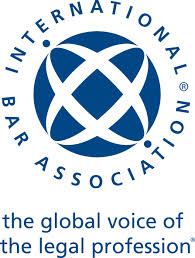The idea that jurisdiction compete for business is getting increasing traction – in Germany, with initiatives like “Law Made in Germany” or English language proceedings in German courts, but even more so in England. The Lord Chancellor and Justice Secretary Chris Grayling this week spoke on his initiative “UK Legal Services on the International Stage”. Not surprisingly, he said that London offered an “unrivalled mix of judicial expertise in the fields of finance, business and property.” But then he went on to say that “resolving disputes in the UK is quicker and cheaper – saving businesses up to £1.4bn a year – but still results in cast-iron judgments that are respected around the world.” Read More
Month: March 2013
IBA Annual Litigation Forum, Istanbul, April 24-26, 2013
 This year’s IBA Annual Litigation Forum will take place in Istanbul on April 24-26, 2013. The conference will focus on disputes between companies, their directors and their shareholders. Here is a link to the programme. On Thursday morning, I will be chairing a session on board room issues, but there are of course many more reasons to come to Istanbul.
This year’s IBA Annual Litigation Forum will take place in Istanbul on April 24-26, 2013. The conference will focus on disputes between companies, their directors and their shareholders. Here is a link to the programme. On Thursday morning, I will be chairing a session on board room issues, but there are of course many more reasons to come to Istanbul.
Speeding Up The Courts: Better Use of Video Conferences
On February 20, 2013, the German Parliament (Bundestag) has passed a law aimed at facilitating the use of video conferences (Gesetz zur Intensivierung des Einsatzes von Videokonferenztechnik in gerichtlichen und staatsanwaltschaftlichen Verfahren) across the various branches of the judiciary. It will enter into force on November 1, 2013. Read More
Law Reform: Prominent Judge Calls for Involvement of Private Practice Lawyers in Judiciary
Reinhard Gaier, a judge at Germany’s highest court, the Federal Constitutional Court (Bundesverfassungsgericht) has written a remarkable op-ed piece for yesterday’s Frankfurter Allgemeine (Hard Nuts – Harte Nüsse). Judge Gaier suggests that what the German judiciary needs is more private practice lawyers getting involved in the judiciary. Read More
